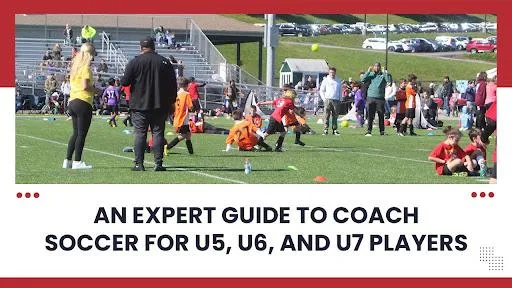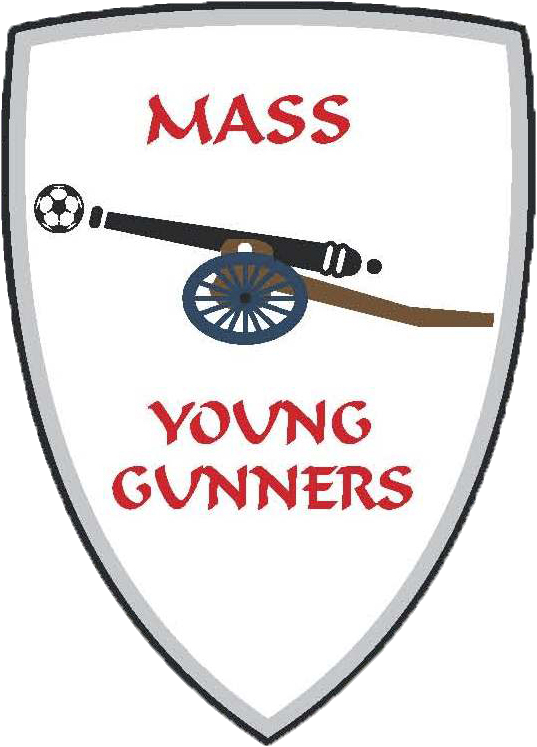BLOGS

An Expert Guide to Coach Soccer for U5, U6, and U7 Players
An Expert Guide to Coach Soccer for U5, U6, and U7 Players

Meta Description: Explore My Gunners expert tips on coach soccer for U5, U6, and U7 players. Ignite passion, build skills, and ensure a joyful journey into the beautiful game
Keywords:
Coach Soccer for U5
Coach Soccer for U6
Coach Soccer for U7
How to Coach Soccer for U5, U6, and U7 Age Groups: A Guide by My Gunners
Soccer, or football as it's known in many parts of the world, is a fantastic sport for children to learn and enjoy. Coaching young players, especially those in the Coach Soccer for U5, U6, and U7 age groups, requires a special approach that balances fun, skill development, and a positive introduction to the beautiful game. In this guide, brought to you by My Gunners, we'll explore effective strategies and tips on how to coach soccer for these budding young athletes.
Understanding the Unique Characteristics of U5, U6, and U7 Players
Before delving into coaching techniques, it's crucial to understand the developmental characteristics of players in the Coach Soccer for U5, U6, and U7 age groups. At this stage, children are in the early stages of physical, social, and cognitive development. They are naturally curious, highly energetic, and eager to explore the world around them.

Coach Soccer for U5: Introducing the Little Stars to the Beautiful Game
Coaching soccer for U5 players is a delightful journey into the world of sports for these budding athletes. At this age, children are taking their first steps, not only on the field but also in their soccer adventure. The emphasis is on creating a positive and imaginative introduction to the beautiful game
Creative Warm-Ups and Imaginative Play:
Begin each session with creative warm-up activities that involve simple movements, such as running and jumping. These activities not only prepare the little players physically but also set a joyful and positive tone for the session. Incorporate imaginative play by turning the soccer ball into a magical object, capturing their curiosity and making the experience more engaging.
Focus on Playful Exploration:
Encourage playful exploration with the soccer ball. The emphasis is on allowing the young athletes to get comfortable with the ball at their feet. Simple activities like rolling the ball and kicking it gently help build their confidence and coordination.

Storytelling and Soccer Adventures:
Weave storytelling into the coaching sessions, creating imaginative soccer adventures. This can involve simple narratives where the soccer ball becomes a friendly character, guiding the children through different "soccer missions." Storytelling not only adds an element of fun but also enhances their engagement with the game.
Positive Reinforcement and Encouragement:
Positive reinforcement is crucial at this stage. Celebrate every effort, no matter how small. Use encouraging words and gestures to build their confidence. Be patient, understanding that attention spans can be short, and create an environment where each child feels valued.

Coach Soccer for U6: Igniting the Passion for Play
Coach soccer for U6 players involves a delicate blend of fun and foundational skill development. At My Gunners, we believe in fostering a love for the game from the very beginning.
Creating a Joyful Atmosphere:
Begin each session with imaginative warm-up activities. These not only prepare the young athletes physically but also set a positive tone for the entire session. Incorporate storytelling into drills, turning the soccer ball into a magical object for an added element of fun
Building Fundamental Skills:
Focus on developing basic dribbling skills using the inside of the foot. Introduce passing simply and enjoyably, emphasizing teamwork. Shooting drills should be more about enjoyment than precision at this stage, encouraging every attempt
Positive Reinforcement and Patience:
Positivity is key. Acknowledge and celebrate every achievement, no matter how small. Be patient, use simple language, and provide encouragement. Break down instructions into manageable steps to ensure the young players grasp the concepts effectively.
Coach Soccer for U7: Nurturing Skills and Team Dynamics
Coach soccer for U7 players marks a pivotal stage in their soccer development. At this age, children are ready for more advanced skills and an introduction to team dynamics. The coaching approach focuses on fostering individual growth while nurturing a sense of teamwork and sportsmanship.

Building on Fundamental Skills:
While U7 players have already been introduced to basic soccer skills, coaching at this level involves refining and expanding on those foundations. Focus on more advanced dribbling techniques, passing accuracy, and controlled shooting. Incorporate fun drills that challenge their growing abilities.
Introduction to Team Dynamics:
As players progress, introduce the concept of team dynamics. Emphasize the importance of working together, passing the ball to teammates, and understanding basic positions on the field. Structured mini-matches within training sessions provide a transition to more coordinated play.
Encouraging Communication and Positional Awareness:
Promote communication among players on the field. Encourage them to call for the ball, communicate with teammates, and begin understanding basic positional awareness. While the focus is on enjoyment, these elements lay the foundation for more strategic play in the future.
Structured Mini-Matches:
Implement structured mini-matches within training sessions. These matches provide an opportunity for players to apply their developing skills in a more game-like scenario. Keep the matches short, emphasize teamwork, and celebrate both individual efforts and collective achievements
Fair Play and Sportsmanship:
Instill the values of fair play and sportsmanship. Emphasize the joy of the game and the respect players should have for their teammates, opponents, and referees. Encourage a positive and supportive atmosphere, reinforcing that winning is enjoyable, but the spirit of the game is paramount
Fundamental Soccer Skills Development
Dribbling Basics:
Focus on developing basic dribbling skills. Emphasize the use of the inside of the foot and encourage players to experiment with controlling the ball while moving in different directions.
Shooting for Fun:
At this stage, shooting drills should be more about enjoyment than precision. Use imaginative goal scenarios and encourage every attempt. This helps build confidence and a positive association with shooting.
Creating a Positive Learning Environment
Positive Reinforcement:
Acknowledge and celebrate even the smallest achievements. Positive reinforcement is crucial in building the players' confidence and fostering a love for the game.
Patience and Encouragement:
Understand that attention spans can be short at this age. Be patient, use simple language, and provide encouragement. Break down instructions into small, manageable steps.
Rotational System:
Implement a rotational system, ensuring that every child has an opportunity to experience different positions. This helps them explore various aspects of the game and prevents boredom.
Inclusive and Family-Oriented Approach
Parental Involvement:
Encourage parental involvement in training sessions. This not only creates a supportive atmosphere but also allows parents to understand the skills being taught, facilitating practice at home.
Inclusive Team Atmosphere:
Foster an inclusive team atmosphere where every child feels valued. Avoid singling out players for mistakes and focus on collective improvement.
Structuring Practice Sessions
Short and Varied Sessions:
Keep practice sessions short and varied. Children of this age group thrive on variety and may lose interest in lengthy drills. Incorporate games, challenges, and skill stations to maintain engagement.
Small-Sided Games:
Introduce small-sided games that encourage teamwork, ball movement, and decision-making. These games provide a dynamic and enjoyable way for players to apply their developing skills in a game-like scenario.
Safety and Well-Being
Appropriate Equipment:
Ensure that players have age-appropriate equipment, including properly sized soccer balls and well-fitted, comfortable soccer shoes. Safety should be a priority to prevent injuries.
Hydration Breaks:
Schedule regular hydration breaks, especially during warmer weather. Children may not always express their need for water, so proactive breaks are essential to keep them energized.
Conclusion
Coach Soccer for U5, U6, and U7 age groups requires a delicate balance of fun, skill development, and positive reinforcement. Believes in providing young players with a foundation that instills a lifelong love for the game. By understanding the unique characteristics of these budding athletes, creating a positive learning environment, and focusing on fundamental skills, coaches can contribute significantly to the players' early soccer experiences. Remember, it's not just about coaching soccer; it's about nurturing a passion that will stay with them for years to come. Enjoy the journey of introducing the next generation to the world of soccer with My Gunners!

